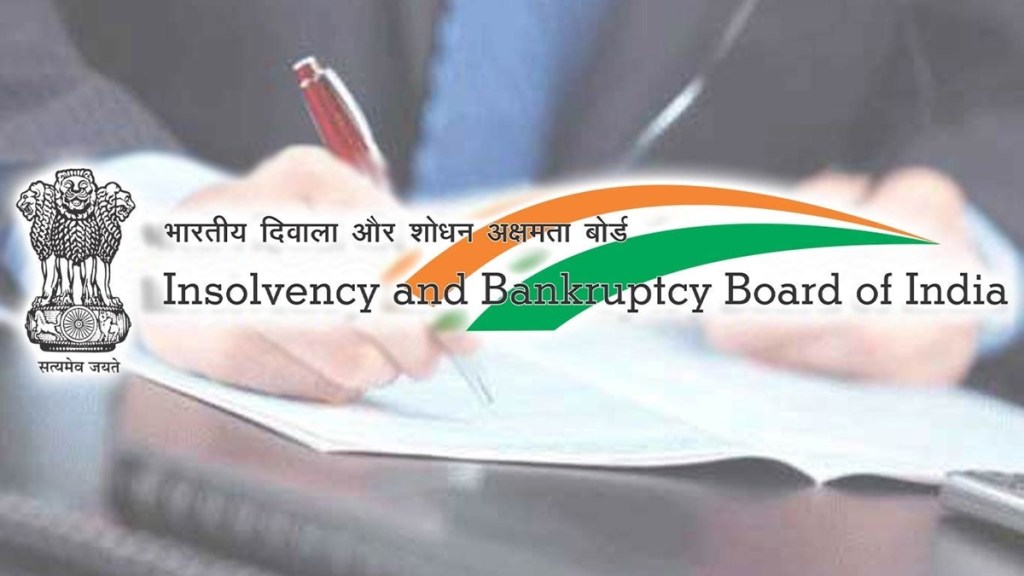To strengthen the regulatory framework governing ‘monitoring committees’ under the Insolvency and Bankruptcy Code (IBC), the Insolvency and Bankruptcy Board of India (IBBI) has proposed to make their constitution “mandatory” for implementation of all resolution plans.
In a discussion paper floated on Tuesday, the IBBI has recommended to empower the Committee of Creditors (CoC) to take the final decision on the constitution, composition, and functioning period of the monitoring committee, as part of the resolution plan.
The monitoring committee would be tasked with comprehensive supervision, which includes oversight of plan implementation, ensuring statutory compliance, and facilitating smooth transfer of assets and control to the successful resolution applicant, the IBBI said. “To ensure transparency and accountability, the committee shall submit quarterly progress reports to the Adjudicating Authority and the Board regarding the implementation status,” it suggested.
Historically, the approved resolution plans have provided for the constitution of an interim board to govern the corporate debtor (CD) between NCLT approval date and transfer date (when control is transferred to the successful resolution applicant). However, due to the absence of a statutory/regulatory framework recognising such interim mechanism, the constitution and role of the interim boards were largely driven by the provisions of the specific resolution plans.
As per the proposal, the monitoring committee shall consist of members who have a direct stake in the successful implementation of the resolution plan. “To ensure balanced representation of interests, the committee shall include nominee(s) from the CoC and an equal number of nominee(s) from the successful resolution applicant,” the IBBI said.
Aishwarya Kaushiq, advocate–disputes practice, BTG Advaya noted that the lack of statutory guidance “often resulted in inconsistencies and enforcement challenges”, which are expected to be addressed by the proposed norms.
Madhav Kanoria, partner, Cyril Amarchand Mangaldas said that with the proposed amendments, the powers and functions of monitoring committees will be clearly specified. “This will strengthen the mechanism and provide a uniform governing system for supervision and implementation of resolution plans,” he added.
Separately, in another discussion paper, the IBBI has suggested changes in extant regulations to enhance clarity in the conduct of insolvency processes; foster a more conducive redressal and enforcement ecosystem for stakeholders; and improve operational efficiency in authorisation for assignment (AFA) processing.
In the interest of operational efficiency and greater flexibility to the insolvency professionals (IPs) and insolvency professional agencies (IPAs), it is proposed to relax the following timelines: (a) for submission of application for renewal of AFA to IPA, the timeline is proposed to be relaxed from existing 45 days before the date of expiry of previous AFA to 90 days; and (b) for approval or rejection of AFA application by the IPA, the timeline is proposed to be relaxed from existing 15 days from date of receipt of application to 45 days from date of receipt of application.
“The proposed amendment by way of relaxation of the aforementioned timelines is a positive step from the IBBI which would ensure higher efficiency at the IPA level while providing IPs with greater flexibility in ensuring the continuity of their AFA,” said Piyush Agrawal, partner, AQUILAW.
Moreover, the paper has proposed to extend the timeline under which the corporate debtor (CD) may address their grievances against the service providers– the insolvency professionals and the information utilities before the IBBI.
It is proposed to extend the time limit for filing grievances or complaints to 30 days from the “closure of the process” by an order of the Adjudicating Authority, Appellate Authority or a Court, which would grant stakeholders an appropriate timeframe to report concerns, while also preserving a reasonable period for the service provider post-closure, said the IBBI.
Jasmine Damkewala, senior partner at Circle of Counsels said that allowing grievances to be addressed during the process or immediately after its conclusion facilitates timely action against any misconduct and strengthens the redressal mechanism and in turn, is much more user friendly and efficient than the earlier strait jacket system.


